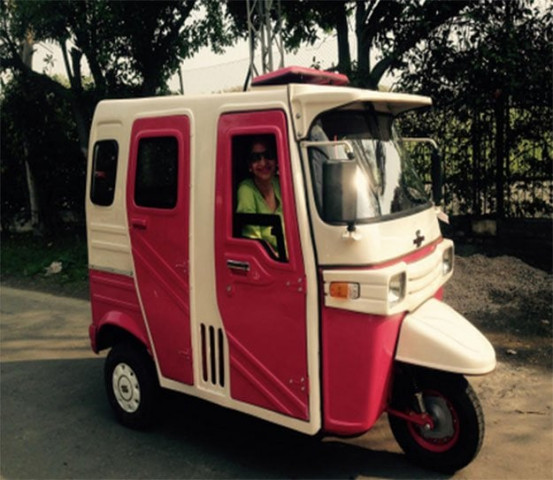EV rickshaws to be localised
In a historic first, localisation initiative aims to slash prices to Rs400,000-Rs500,000

Localisation of Electric Vehicle (EV) rickshaws is set to launch in the coming months, aiming to reduce prices to around Rs400,000-500,000 per unit in the local market. This marks the first time in the country’s history that the localisation of EV rickshaws will be initiated with the goal of scaling down prices. However, the imported Completely Knocked-Down (CKD) kit of EV rickshaw costs Rs1 million per unit in the local market.
Localising more parts will significantly reduce costs and the import bill, as importing CKD kits from China is challenging. This is due to a single container being stuffed with only 20 or 25 CKD kits of rickshaws, and transportation costs are high, making completely imported rickshaws at Rs1 million unaffordable for local rickshaw drivers.
Well-placed sources in the market have indicated that four-to-five Lahore-based companies specialising in EV rickshaws will emerge and launch their products soon. Representatives of Chinese branded companies have come to Pakistan and have been engaging in discussions with local auto industrialists to finalise agreements. By the end of this year, EV rickshaws may be operational on the roads of the country.
Market pundits have already stressed the need of localising maximum parts of the local auto industry to safeguard the struggling sector and provide end-users with greater benefits in terms of quality and prices.
The Pakistan Automotive Manufacturers Association (PAMA) has reported a decline in sales of all vehicles, except for a significant rise in farm tractors recently.
According to Auto Sector Expert and Analyst Muhammad Sabir Sheikh, the EV industry represents the ultimate future of the country, as fewer people are willing to invest in fuel-driven cars, motorbikes, or even rickshaws. He noted that customers are gradually shifting towards EVs, aligning with the rising trend observed in modern countries.
“It is relatively simple to assemble rickshaws, with many components, such as the main body, frame, chassis, front and rear shocks, readily manufacturable. Meanwhile, the motor controller, motor, and battery of EV rickshaws can initially be imported until the entire technology is transferred. Additionally, these EV rickshaws will be equipped with solar panels on their roofs to facilitate daytime charging,” he said.
Sheikh added that, “Several companies specialising in three-wheelers have already imported some CKD kits of EV rickshaws for successful test drives. However, once these rickshaws are marketed and sold, there will be a demand for thousands of units due to their maintenance-free nature. Eventually, drivers will be able to cover the cost of EV rickshaws.”
Auto Analyst and IBA Assistant Professor Dr Aadil Nakhoda pointed out the need to first understand what ‘localisation’ implies.
“We must ensure that local players are globally competitive, not just domestically. High tariffs and protection do not help as they end up shifting the cost of inefficiencies onto the consumer. Secondly, localisation without technology transfer agreements may lead to the dumping of low-quality and less efficient technologies as they become outdated in other countries. We require quality checks, certifications, and inspection requirements rather than tariffs and import restraints. The purpose of all policies must be to protect the rights of consumers, who should have access to the best quality products at the lowest possible price. Lastly, localisation needs to be analysed throughout the supply chain, as some local suppliers may be dependent on imported inputs and may be importing at higher costs than otherwise available,” said Nakhoda.
He added that all localisation policies, if pursued, should aim to develop a competitive sector. It is preferable to invest in the capabilities of businesses and improve facilitation rather than prioritising short-term gains.
Published in The Express Tribune, May 19th, 2024.
Like Business on Facebook, follow @TribuneBiz on Twitter to stay informed and join in the conversation.



















COMMENTS
Comments are moderated and generally will be posted if they are on-topic and not abusive.
For more information, please see our Comments FAQ